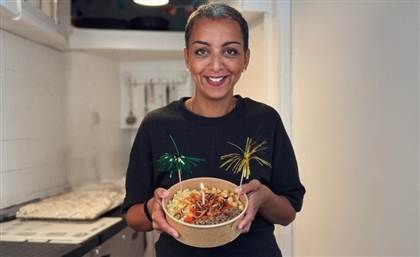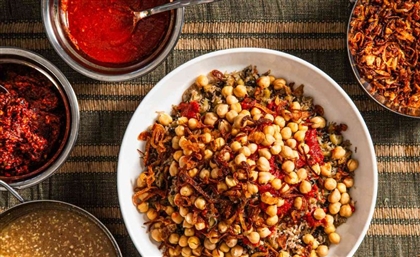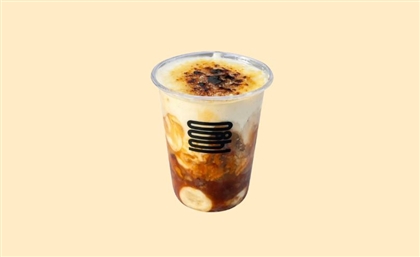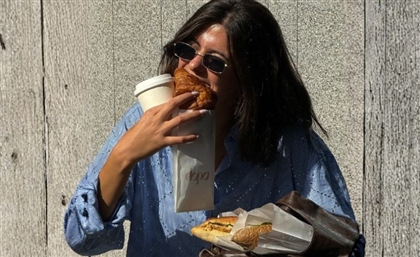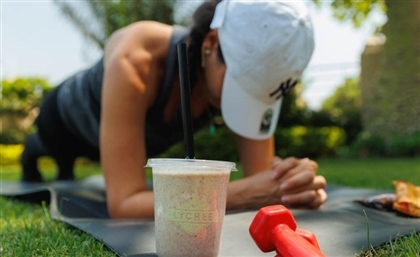Inside Asma Khan’s Cairo Food Week Kitchen
“Every girl in the kitchen is my daughter, and I will not rest until they all feel like that kitchen is theirs,” says Asma Khan.
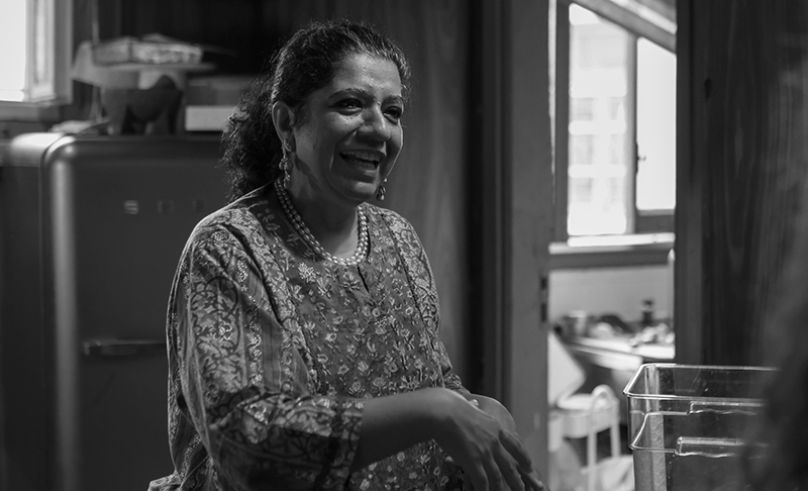
The phrase “more than just x but y” has been hijacked by the GPT gods. Everything is more than just something these days. But Asma Khan really is more than a chef, and her food is more than food. She refuses to call herself a chef. To her, that professional, sanitised label and the institution it belongs to feel distant. “Women and men cook differently,” she says. One style comes from what she calls the “stainless steel empire,” the other from instinct, born of proximity to the kitchen.
Asma Khan cooks and speaks with the same ferocity and clarity. The kitchen is an extension of her advocacy, her food shaped by an awareness of politics, race, gender, and hunger. Khan’s Chef’s Table episode became the series’ most-watched, and to her, that was both a battle cry and a victory for women and girls in India.
Asma’s cooking journey began as a way to taste home. After moving to the UK in 1991, her cure for homesickness was the taste of her mother’s kitchen. Food became a form of healing, a way to control her reality, and an act of love. She refuses to call herself a chef. She cooks, the verb in the most laborious sense of the word.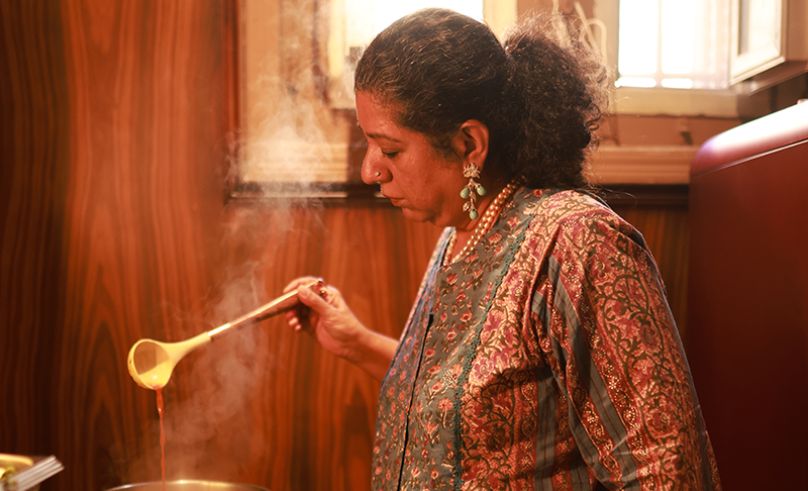 That same labour is why she wants the hands making that food to be seen, to uncover a labour and a task historically fallen on women, yet never acknowledged as labour to begin with. Not just not labour, but definitely not creative and not artistic. Her open-plan kitchen in London positions her all-women team of chefs at the centre – a celebration of their labour and an unpacking of the politics that made women cooking a site so normal, so mundane and unappreciated, to the point that the labour of it has become erased, taken for granted, and never materially rewarded.
That same labour is why she wants the hands making that food to be seen, to uncover a labour and a task historically fallen on women, yet never acknowledged as labour to begin with. Not just not labour, but definitely not creative and not artistic. Her open-plan kitchen in London positions her all-women team of chefs at the centre – a celebration of their labour and an unpacking of the politics that made women cooking a site so normal, so mundane and unappreciated, to the point that the labour of it has become erased, taken for granted, and never materially rewarded.
One of the first things Asma Khan told me when we met was that she wouldn’t want to see her daughter become a professional chef. “I would never be able to sleep. I would check her body every day for burns and scars and bite marks,” she said, in reference to the violence and sexual harassment young women are subjected to in world-class kitchens worldwide. She then said, “I don’t have a daughter, so that’s why every girl in the kitchen is my daughter, and I will not rest until they all feel like that kitchen is theirs.”
In her own kitchen in India, she rejects hierarchy entirely. Her team of women, from young cooks to grandmothers, show up each day without assigned roles. She doesn’t decide who cuts the onions, and she lets the teary-eyed newcomers off the hook. She insists that this is liberation.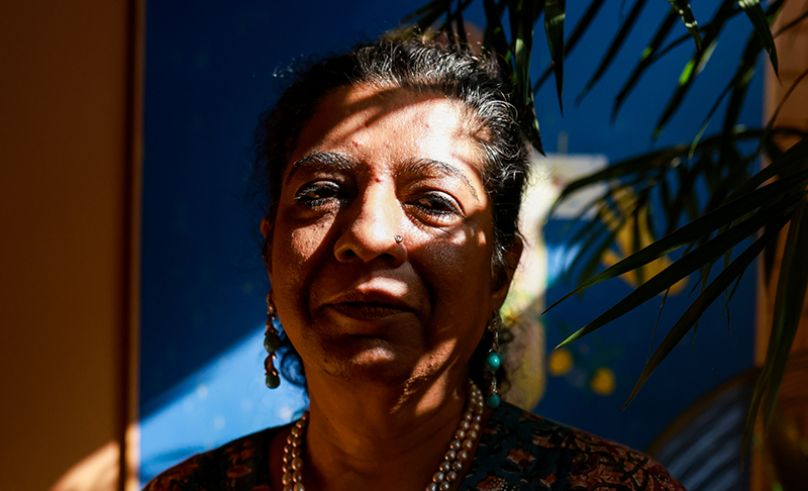 In her Egyptian kitchen, hosted by Cairo Food Week at Zamalek’s social kitchen concept Kook, Asma built her menu around seasonality. Cooking what’s in season feels obvious here in Cairo, and to Asma, raised in India, but in Western kitchens, and in the UK, where she’s based, it isn’t.
In her Egyptian kitchen, hosted by Cairo Food Week at Zamalek’s social kitchen concept Kook, Asma built her menu around seasonality. Cooking what’s in season feels obvious here in Cairo, and to Asma, raised in India, but in Western kitchens, and in the UK, where she’s based, it isn’t.
Prep time was calmer than expected. Asma floated through the kitchen, talking us through her process. She didn’t measure a single ingredient. “Any measurements in my cookbooks are because someone watched me cook and took notes,” she laughed. She tasted, sprinkled, adjusted. Egyptian chillies caught her off guard with their heat.
On the menu was Courgette Paratha, vivid green flatbreads made with zucchini. “This is how Indian mothers get their kids to eat vegetables,” she joked. For the main course, Jhal Farezi carried a story of British occupation in India, a dish born from leftover Sunday roasts, when British soldiers taught Indian chefs to toss shredded chicken ‘scraps’ with spices and lemon. The dish travelled, persisted, and reached Cairo, where Asma revived it to bring that history to the table. Then came the watermelon curry, the most unexpected of all, a recipe rooted in her father’s childhood in the Indian desert, where summer yielded only watermelon and chillies. A curry was the result.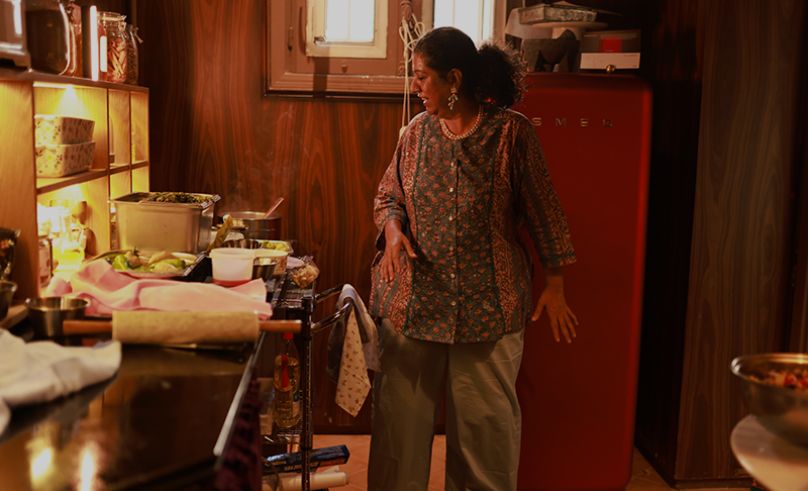 For dessert, Asma bent her own rules of seasonality, determined to catch the tail end of Egypt’s mango season. Spiced yoghurt and fresh mango sealed her intimate lunch. While fine dining insists on separating sauce from food, Asma refuses. Among the many things she denounced throughout our chat, edible flowers made the list. “If I wanted to eat edible flowers, I’d go eat my garden,” she said.
For dessert, Asma bent her own rules of seasonality, determined to catch the tail end of Egypt’s mango season. Spiced yoghurt and fresh mango sealed her intimate lunch. While fine dining insists on separating sauce from food, Asma refuses. Among the many things she denounced throughout our chat, edible flowers made the list. “If I wanted to eat edible flowers, I’d go eat my garden,” she said.
That aestheticisation of “cultured” food, the nitpicking, the oversized plates with a single bite at the centre, is racist. It’s racist for every local cuisine to be “refined,” “twisted,” or “fused” into something other than what it is. “My skin is brown, my food is brown,” she declared.
Her plates were full, the lunch table messy with communion. In Cairo, she followed the Cairene season: fresh watermelon, chillies, and eggplant as a substitute for pumpkin. The Egyptian souq guided her menu, and her plates refused to be neat.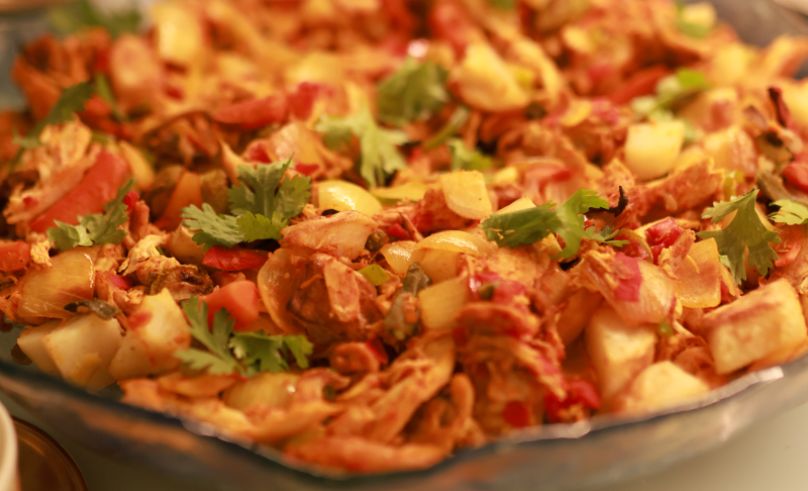 Asma’s final verdict on Egypt was simple: the history fascinated her, but she couldn’t resist noting that Koshari started in India. She isn’t quite ready to test Egyptian rice in her biryani, and found Egyptian chillies far spicier than she expected…
Asma’s final verdict on Egypt was simple: the history fascinated her, but she couldn’t resist noting that Koshari started in India. She isn’t quite ready to test Egyptian rice in her biryani, and found Egyptian chillies far spicier than she expected…
Trending This Month
-
Jan 29, 2026
-
Jan 30, 2026




